François Gabart Conquers The Transat bakerly
Published on May 10th, 2016
(May 10, 2016; Day 9) – François Gabart and his 100-foot VPLP designed trimaran Macif was first to finish The Transat bakerly, the 3050nm solo transatlantic race from Plymouth to New York. Gabart crossed the finish line today at 18:24 ET, a crossing time of 8 days, 8 hours, 54 minutes, and 39 seconds.
Gabart had enjoyed a magic carpet downwind ride across the Atlantic but his progress to the race finish was slowed as he encountered light airs crossing the Gulf Stream. The light and fickle conditions had seemingly thrown the game wide open between him and Thomas Coville on Sodebo, who this morning was 64 miles behind Macif. However, Gabart enjoyed a 118 nm margin at the finish.
The finish time, recorded by the Sandy Hook Pilot Association boat, marks the first solo race win on Macif for the 33-year-old, who in 2013 became the youngest ever winner of the Vendée Globe solo round-the-world race.
Gabart actually sailed a total distance of 4,634 nm at an average speed of 23.11 knots. Unusually for The Transat bakerly, it took him, and his close rival Thomas Coville on Sodebo, hundreds of miles south of the Azores into the tradewinds before sling-shotting northwest up to New York.
Behind the Ultimes, Gilles Lamiré (French Tech Rennes St Malo) still leads the Multi50 fleet but is also feeling the effect of the lighter conditions.
“This is a great race, I am really enjoying it,” said Lamire this morning, who is delighted that his choice of a more southerly route than Roucayrol is paying off. “I am trying to concentrate on what I am doing and I apply myself, because it’s hard. I tell myself that if I do everything right, it will continue.
“I am very happy with my trajectory,” he added. “The choice of this southern route has been carefully thought out, it was not obvious at first. But I thought the best route in the north would not avoid the (Ice Exclusion Zone) and the routing looked a little optimistic to me. But it’s true that I did not expect to be enjoying my deckchair in the sun, downwind and south of Azores – it’s amazing!”
At the head of the IMOCA 60 class, the top three boats Banque Populaire, PRB and St Michel-Virbac remain as tight as ever as they race past the western edge of the Ice Exclusion Zone, about 450 miles southeast of Prince Edward Island in Nova Scotia.
In the Class40 race, the fleet is split between seven skippers following in the wake of the IMOCA 60s heading towards the Ice Exclusion zone, and Louis Duc (Carac), going it alone behind Arkema, 445 miles south of them.
Duc’s decision seems to be paying off for the moment, sailing at nine knots, compared to an average five knots by the northernmost boats who are running out of sea room up against the restricted zone. Currently Carac lies fifth overall, 75 miles behind the leaders.
But the battle in the north continues to rage with Isabelle Joschke (Generali-Horizon Mixité) now ahead of Thibaut Vauchel-Camus (Solidaires en Peloton-Arsep) by just three miles. British skipper Phil Sharp on Imerys is still third, 28 miles behind Joschke.
Armel Tripon on Class40 Black Pepper has made the decision to retire, a result of breakages incurred over the weekend when a deep depression swept across the Atlantic. After making a stop at Horta in the Azores to assess the damage, Armel deems his situation too dire to contine.
Event website – Tracker – Facebook
About The Transat
Twenty-five boats set sail May 2 2016 on one of the great races in solo sailing, the 3,050-nautical mile passage across the north Atlantic from Plymouth to New York. Alongside 24 competing skippers is a one-off entry by the French racing legend Loick Peyron who is sailing Eric Tabarly’s 44ft wooden ketch Pen Duick II in the same trim as she was when Tabarly raced her to victory in The Transat (then called the OSTAR) in 1964.
The OSTAR (Observer Singlehanded Trans-Atlantic Race) was created in 1960 by a handful of pioneering sailors. The race was organised every four years by the Royal Western Yacht Club (RWYC) from 1960 through to the 2000 event, albeit with a lot of involvement from the French event organiser Pen Duick in the 90s, in order to cater for the demands of the professional campaigns that dominated the event.
After the 2000 edition, OC Sport stepped in to develop the event and acquired the rights to the professional part. OC Sport organised The Transat in 2004 and 2008, the 2012 edition was deferred at the request of IMOCA (the largest competing class).
The RWYC continues to organise a solo transatlantic race for Corinthian and non-professional sailors that is still known as the (O)STAR,. This race usually falls a year after the professional big boat race i.e. 2005, 2009, 2013, 2017. Both the amateur Yacht Club event and The Transat have the right to link to the history of the original race created in 1960, and to the rich history it has produced.
The first race was competed by just a handful of pioneering sailors including Francis Chichester and Blondie Hasler who coined the phrase: “One man, one boat, the ocean.” There has been tragedy, dramatic rescues and exceptional drama since the race began in 1960. Over time The Transat, as it is known today, has evolved and now serves the professional end of offshore sailing. But there are few modern day races that can reflect on such a long and outstanding history.
Monohull IMOCA 60 record: 12 days, 11 hours and 45 minutes set by Loick Peyron (FRA) on board Gitana in 2008. Multihull 60ft record: 8 days, 8 hours, 29 minutes set by Michel Desjoyeaux (FRA) on board Géant in 2004.
Source: The Transat


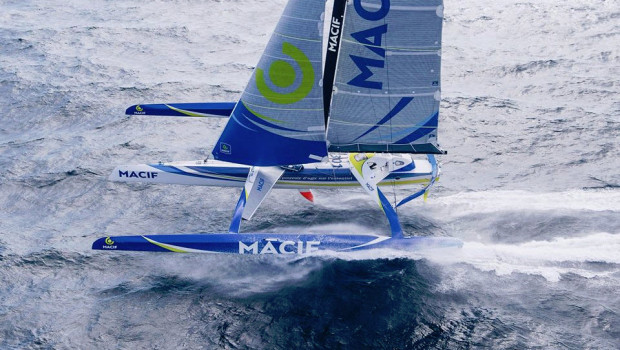

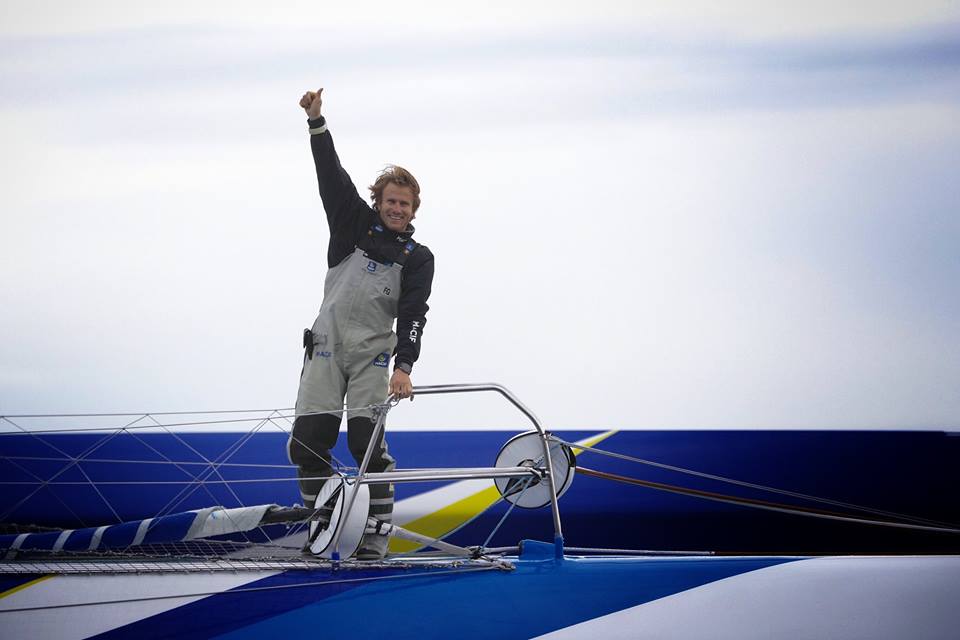
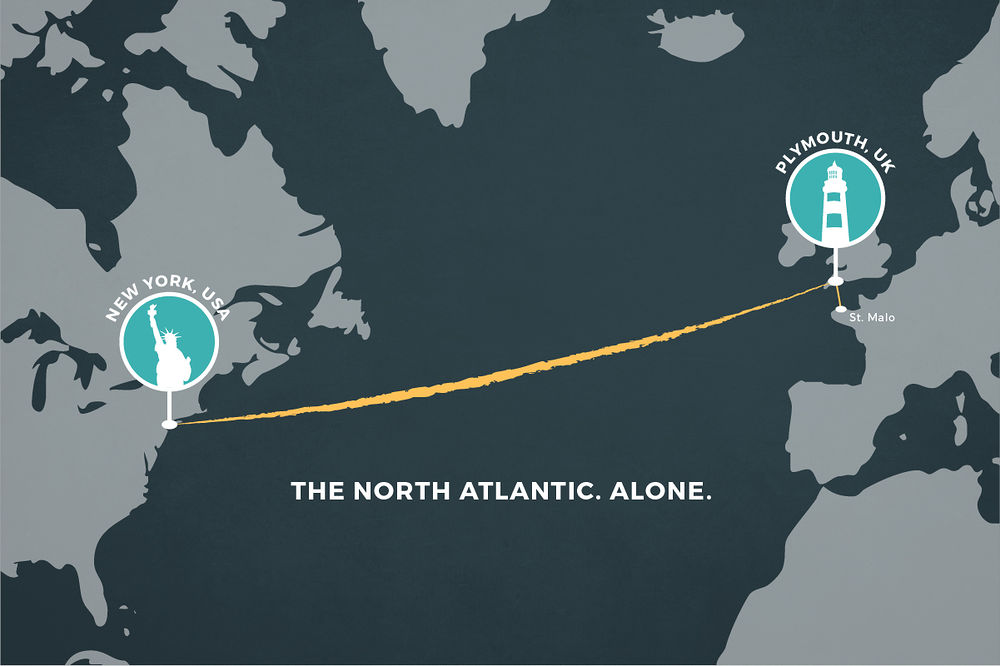

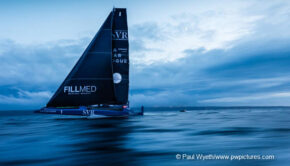
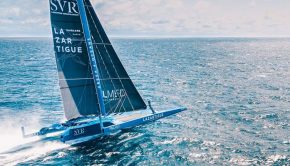
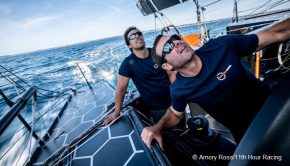

 We’ll keep your information safe.
We’ll keep your information safe.